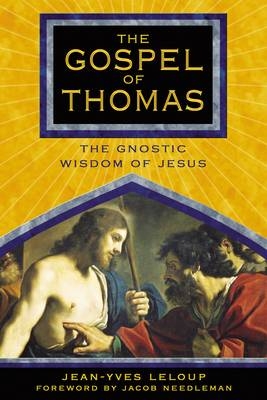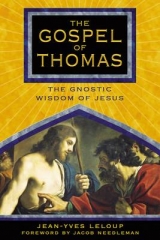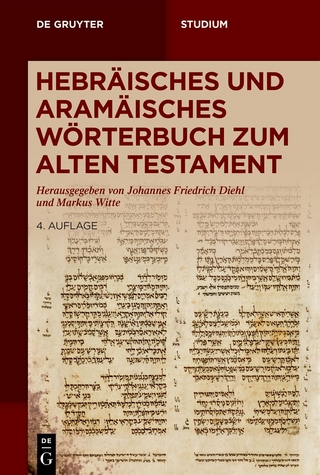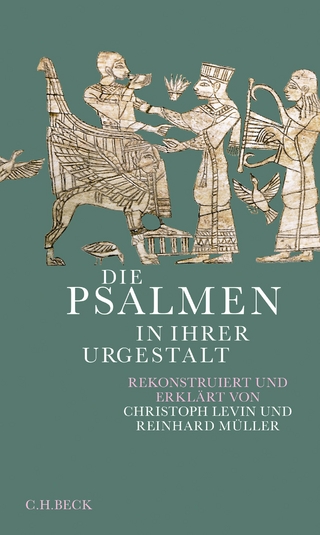The Gospel of Thomas
The Gnostic Wisdom of Jesus
Seiten
2005
Inner Traditions Bear and Company (Verlag)
978-1-59477-046-3 (ISBN)
Inner Traditions Bear and Company (Verlag)
978-1-59477-046-3 (ISBN)
A new translation and analysis of the gospel that records the actual words of Jesus.
One of the cache of codices and manuscripts discovered in Nag Hammadi, the Gospel of Thomas, unlike the canonical gospels, does not contain a narrative recording Christ's life and prophecies. Instead it is a collection of his teachings--what he actually said. These 114 logia, or sayings, were collected by Judas Didymus Thomas, whom some claim to be Jesus's closest disciple. No sooner was this gospel uncovered from the sands of Upper Egypt than scholars and theologians began to bury it anew in a host of conflicting interpretations and polemics. While some say it is a hodgepodge from the canonical gospels, for others it is the source text from which all the gospel writers drew their material and inspiration. In this new translation of the Gospel of Thomas, Jean-Yves Leloup shows that the Jesus recorded by the ""infinitely skeptical and infinitely believing"" Thomas has much in common with gnostics of non-dualistic schools. Like them, Jesus preaches the coming of a new man, the genesis of the man of knowledge. In this gospel, Jesus describes a journey from limited to unlimited consciousness. The Jesus of Thomas invites us to drink deeply from the well of knowledge that lies within, not so that we may become good Christians but so we may attain the self-knowledge that will make each of us, too, a Christ.
One of the cache of codices and manuscripts discovered in Nag Hammadi, the Gospel of Thomas, unlike the canonical gospels, does not contain a narrative recording Christ's life and prophecies. Instead it is a collection of his teachings--what he actually said. These 114 logia, or sayings, were collected by Judas Didymus Thomas, whom some claim to be Jesus's closest disciple. No sooner was this gospel uncovered from the sands of Upper Egypt than scholars and theologians began to bury it anew in a host of conflicting interpretations and polemics. While some say it is a hodgepodge from the canonical gospels, for others it is the source text from which all the gospel writers drew their material and inspiration. In this new translation of the Gospel of Thomas, Jean-Yves Leloup shows that the Jesus recorded by the ""infinitely skeptical and infinitely believing"" Thomas has much in common with gnostics of non-dualistic schools. Like them, Jesus preaches the coming of a new man, the genesis of the man of knowledge. In this gospel, Jesus describes a journey from limited to unlimited consciousness. The Jesus of Thomas invites us to drink deeply from the well of knowledge that lies within, not so that we may become good Christians but so we may attain the self-knowledge that will make each of us, too, a Christ.
Jean-Yves Leloup is the founder of the Institute of Other Civilization Studies and the International College of Therapists. His other books include the bestselling The Gospel of Mary Magdalene and The Gospel of Philip. He lives in France.
Foreword by Jacob Needleman
Abbreviations
Introduction
The Text of the Gospel of Thomas
Commentary
Resources
Bibliography
| Vorwort | Jacob Needleman |
|---|---|
| Verlagsort | Rochester |
| Sprache | englisch |
| Maße | 152 x 229 mm |
| Gewicht | 295 g |
| Themenwelt | Religion / Theologie ► Christentum ► Bibelausgaben / Bibelkommentare |
| ISBN-10 | 1-59477-046-8 / 1594770468 |
| ISBN-13 | 978-1-59477-046-3 / 9781594770463 |
| Zustand | Neuware |
| Informationen gemäß Produktsicherheitsverordnung (GPSR) | |
| Haben Sie eine Frage zum Produkt? |
Mehr entdecken
aus dem Bereich
aus dem Bereich
Buch | Softcover (2021)
De Gruyter (Verlag)
29,95 €
wie wir uns unsere spirituelle Heimat zurückholen
Buch | Hardcover (2024)
Patmos Verlag
20,00 €




